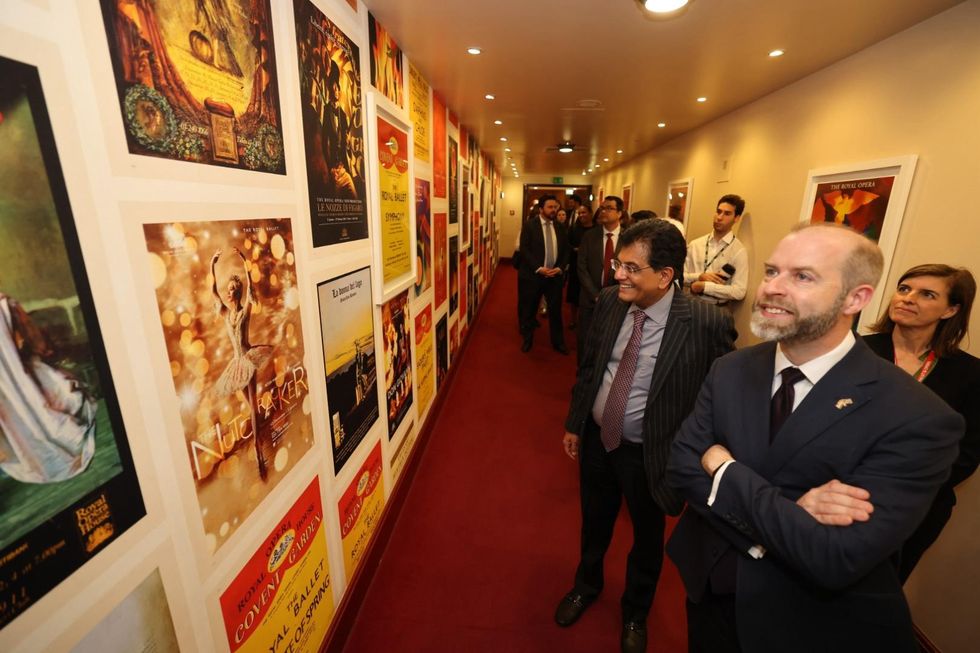From cutting power subsidies to forcing currency devaluations that stoke inflation, the hard choices facing Pakistan as it seeks a bailout from the International Monetary Fund (IMF) pose a major headache for populist new prime minister Imran Khan.
Pakistani officials met IMF representatives this week in Bali and formally requested Islamabad's 13th bailout since the late 1980s to give the economy breathing room, while they implement reforms aiming to end decades of boom and bust cycles.
On top of lending the nuclear armed state billions of dollars to avert another balance of payments crisis, the IMF is this time expected to push Islamabad much harder to enact structural reforms needed to rebalance the economy, and rein in spending that has boosted growth but blown out the government budget.
Talks with the IMF have been launched and managing director Christine Lagarde has already said she would require "absolute transparency" of Pakistan's debts, including those owed to close ally China.
Any reforms prescribed by the IMF would threaten Khan's lofty campaign promises, like his vow to create 10 million jobs and establish an "Islamic welfare state" modelled on the ideas first voiced by the Prophet Mohammad in the holy city of Medina.
Khan was elected in July with the support of many poorer Pakistanis desperate for a change in a nation where the illiteracy rate hovers above 40 percent, healthcare is shoddy, and joblessness or underemployment rife among the country's 208 million people.
Creating 10 million jobs would require the economy to grow at 8 percent but that can only be achieved with economic shock therapy that in the short term will smother growth to far below the 5.8 percent achieved in the year to June, economists say.
"The path to Medina is full of thorns, not roses," said one expert at an international donor agency, who declined to be identified as he is not authorised to speak on the issue.
"To get there, they have to go through these painful measures now."
The IMF predicted this week Pakistan's growth will slow to 4 percent in 2019 and fall to about 3 percent in the medium term.
A sharp increase in oil prices - Pakistan imports about 80 percent of oil needs - has contributed to a current account deficit that widened 43 percent to $18 billion in the fiscal year that ended June 30. The weakening Pakistan rupee also contributes to a rise in local energy prices.
On Wednesday, Khan blamed the previous government for the economic mess and urged Pakistanis to remain calm.
"I want to tell all of you to stay strong and not to panic. This is a very short period of time which will go away."
"FEND FOR OURSELVES"
As an opposition leader, Khan vowed to never "beg" for money from the IMF and swept to power on an anti-corruption platform that was coupled with a promise to enact badly needed reforms, including widening the nation's taxation net and reforming loss-making state-run enterprises.
But local and foreign investors have welcomed the bailout talks, saying Pakistan's economy needs the IMF's protective blanket because of rising oil prices and emerging markets turmoil. However, they also warned of tougher conditions compared to 2013, when Islamabad was given repeated wavers and avoided harsh reforms after receiving a $6.7 billion IMF loan.
"Better that we enter into a well-structured IMF programme than try to fend for ourselves," the Pakistan Business Council said in a statement.
In a nod to the IMF, which called the rupee "over-valued", Pakistan's central bank on Tuesday carried out its fifth devaluation since December, sending the rupee tumbling 7.5 percent to take its losses to 26 percent in the past 10 months. More devaluations are expected.
The bank has also hiked its main interest rate by 275 basis points since January, to 8.5 percent, and analysts say more rises are on the horizon.
The devaluations have stoked inflation worries and are putting extra pressure on debt servicing, which is a major concern for the new government. Debt service costs are set to account for 35 percent of the budget in the fiscal year to next June, according to forecasts from the previous government. Officials now expect the debt to GDP ratio to rise above 70 percent.
"We really have to get out of this debt dependency trap," Muhammad Hammad Azhar, Pakistan's state minister for revenue, told Reuters.
He said the government was considering the possible restructuring of some foreign loans but did not give details.
Khan's government blames many of Pakistan's current economic woes on the previous administration's "strong rupee" policy, which rendered Pakistan's exports uncompetitive. The central bank also burnt through currency reserves defending the rupee.
Reserves have plummeted 41 percent this year to stand at $8.3 billion, or about 1.6 months of import cover, despite China lending billions of dollars to Islamabad to prop up the currency.
CHINA LOANS
China has made Pakistan a flagship country in its vast Belt and Road infrastructure building programme, pledging about $60 billion in financing for ports, railways and roads. But rising debt levels have caused Islamabad to cut the size of the biggest Belt and Road project by about $2 billion.
U.S. Secretary of State Mike Pompeo has said there would be "no rationale" for an IMF bailout of Pakistan that pays off Chinese loans.
Khan's administration had also approached China and Saudi Arabia, Islamabad's other historical ally, for help to prop up the economy but they appear to have balked at coming to Pakistan's rescue on their own.
Though the size of any bailout is not clear, Khan this week suggested Pakistan needs $10-12 billion. On top of the IMF, the World Bank and the Asian Development Bank are expected to lend money, as they did in 2013. China and Saudi Arabia may also contribute.
The IMF last week commended Pakistan for curbing gas and electricity subsidies, raising interest rates and devaluing the currency. But it warned that Islamabad needs to go even further in all those areas.
Pakistani officials say they are braced for tough measures but hope to expand the tax base and raise more revenue rather than rely purely on austerity to patch up a budget deficit which hit 6.6 percent of GDP in the fiscal year to end June. They also want to help further stimulate exports.
Azhar said Khan's party was elected on a reforms agenda and would push through changes "irrespective of any IMF bailout".
On Wednesday, Khan launched a programme aiming to construct five million homes for the poor, a top campaign promise. But he didn't explain how the government will pay for it.
















 Suhana Khan and Aryan Khan earn their place through hard work says Karan JoharInstagram/Pinkvilla
Suhana Khan and Aryan Khan earn their place through hard work says Karan JoharInstagram/Pinkvilla  Karan Johar defends Shah Rukh Khan's kids against nepotism claimsGetty Images
Karan Johar defends Shah Rukh Khan's kids against nepotism claimsGetty Images 


 Piyush Goyal and Jonathan Reynolds tour the Royal Opera House in London
Piyush Goyal and Jonathan Reynolds tour the Royal Opera House in London